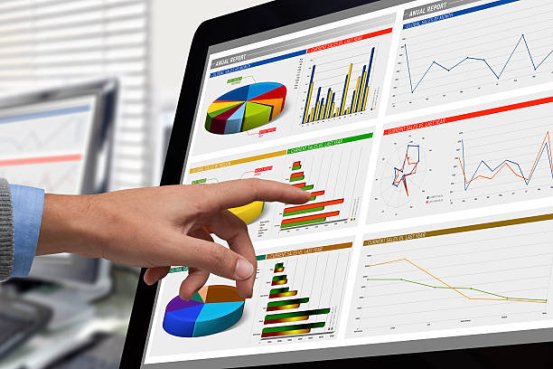Portfolio reporting software is increasingly vital for small businesses, investors, and real estate professionals seeking precise financial oversight. This guide examines the features, benefits, and types of portfolio reporting tools, highlighting how these systems simplify data analysis, improve transparency, and support informed investment decisions across industries.

What Is Portfolio Reporting Software?
Portfolio reporting software enables businesses and individuals to track, manage, and analyze their investments efficiently. It provides detailed insights into asset performance, portfolio allocation, and financial risk. In today’s data-driven landscape, access to accurate, real-time information is essential for strategic decision-making. Many platforms include visualization tools that translate complex metrics into clear charts, helping users interpret trends and adjust strategies effectively.
Key Features of Portfolio Reporting Software
-
Real-Time Analytics: Continuous updates allow users to respond promptly to market fluctuations and optimize their investments.
-
Customizable Reporting: Users can generate reports tailored to specific stakeholders, emphasizing relevant financial metrics.
-
Seamless Integration: Most software connects with accounting and financial systems, reducing manual input and minimizing errors.
-
User-Friendly Interface: Intuitive dashboards make navigation and analysis accessible for all experience levels.
-
Robust Security: Encryption, firewalls, and multi-factor authentication protect sensitive financial data.
Types of Portfolio Reporting Software
1. Free Portfolio Reporting Tools
Ideal for beginners and small operations, free platforms offer essential features like performance tracking, allocation visualization, and goal setting, though advanced analytics may be limited.
2. Real Estate Portfolio Management
Designed for property investors, these platforms track income, expenses, market valuations, and regional trends. Geo-mapping features provide location-based insights that enhance decision-making.
3. Popular Solutions
-
Morningstar Direct: Premium platform with advanced analytics, benchmarking, and market comparison capabilities.
-
Personal Capital: Free tool with portfolio tracking and optional advisory services.
-
Quicken Premier: Integrates budgeting and investment management for a complete financial overview.
4. Tools for Individual Investors
These solutions help self-directed investors track performance, analyze diversification, and benchmark their portfolios against goals.
5. Solutions for Small Businesses
Small businesses use reporting software to consolidate budgeting, forecasting, and investment data, enabling informed strategic decisions and identifying growth opportunities.
6. Advanced Tools for Small Enterprises
For growing companies, sophisticated platforms provide detailed insights into cash flow, profitability, and investment performance, supporting strategic planning and investor trust.
Benefits of Portfolio Reporting Software
-
Informed Decisions: Data-driven insights guide investment and operational strategies.
-
Operational Efficiency: Automation reduces manual work and streamlines processes.
-
Risk Mitigation: Early detection of financial risks allows proactive measures.
-
Transparency: Detailed reporting strengthens stakeholder confidence.
-
Forecasting: Historical data supports predictive analysis for future planning.
Implementation Challenges
While valuable, adopting portfolio reporting software can present hurdles:
-
High Costs: Premium systems may be expensive for small businesses.
-
Learning Curve: Complex tools may require time and training to master.
-
Integration Issues: Older systems may not sync easily with modern platforms.
-
Customization Needs: Some organizations may require extra configuration to meet reporting standards.
Comparing Leading Platforms
| Feature | Morningstar Direct | Personal Capital | Quicken Premier |
| Real-Time Data | Yes | Yes | Yes |
| Customizable Reports | Yes | No | Yes |
| Integration | Yes | Yes | Limited |
| User-Friendly | Moderate | High | High |
| Security | Advanced | Standard | Standard |
Frequently Asked Questions
Q1: Which free portfolio reporting software is best?
A1: Personal Capital is a strong free choice, offering detailed tracking and optional advisory support.
Q2: Can real estate professionals benefit?
A2: Yes. Platforms designed for real estate track property performance, rental yields, and expenses, aiding investment planning.
Q3: Should small businesses use premium software?
A3: Not always. Many start with free or low-cost tools and upgrade as their requirements grow.
Q4: Are these platforms secure?
A4: Most reputable solutions employ encryption, authentication, and other security measures to protect data.
Conclusion
Portfolio reporting software is essential for managing investments and financial operations effectively. It provides transparency, reduces risk, and supports data-driven decision-making. Whether for individual investors, small businesses, or real estate professionals, selecting the right tool and implementing it strategically can greatly enhance portfolio oversight and growth potential.
Sources:
https://www.clearpointstrategy.com/blog/strategic-portfolio-management-tools
https://thedigitalprojectmanager.com/tools/ppm-tools/
